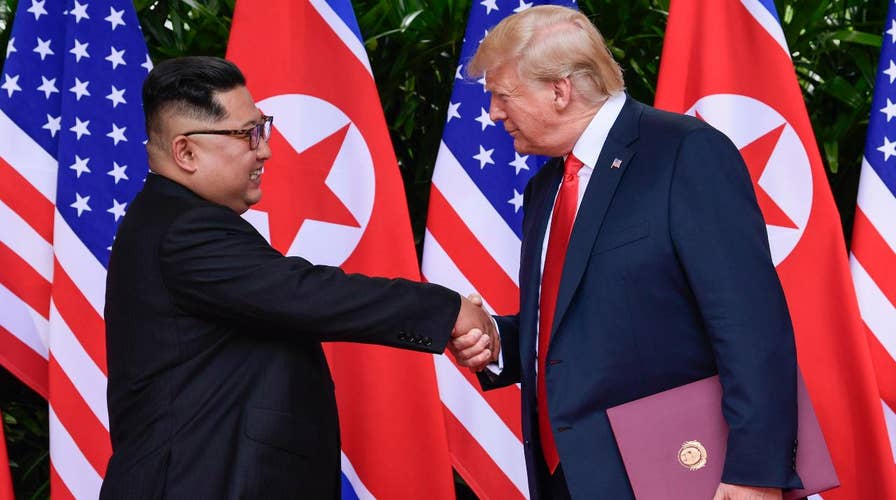North Korean leader Kim Jong Un has targeted opponents of his diplomatic efforts with the U.S. and South Korea by jailing them, sending them out of the country, and even executing them, according to The Wall Street Journal.
Between 50 and 70 people have been targeted in what the state-run media is depicting as an effort to combat corruption, The Journal said.
Kim is also seizing the assets of North Korea’s wealthiest citizens, said The Journal, citing U.S. security analysts and former South Korean intelligence officials.
The moves =-- particularly asset confiscations -- signal a possible effort by Kim to remove obstacles to a plan to acquire money as his government copes with international sanctions.
The officials whose assets are being seized, The Journal said, acquired their money illegally.
EX-DIPLOMAT SAYS NORTH KOREAN LEADER WON'T GIVE UP NUKES
The strategy by Kim is discussed in a report from the North Korea Strategy Center, a think tank in Seoul, South Korea, whose founder is a North Korean defector. Sources for the report were North Koreans who now work for the government, or used to.
The Journal said that in a speech on Jan. 1, Kim proclaimed that party and government entities "should intensify the struggle to eradicate both serious and trivial instances of abuse of power, bureaucratism and corruption, which would wreak havoc ... and undermine the socialist system.”
Last year Kim’s regime targeted senior officials of the North Korean Guard Command, accusing them of financial mismanagement.
The Wall Street Journal said it could not verify the details about the so-called purging of people Kim see as threats or opportunities to seize assets.
"Many of these purges are related to money," said Kim Jung-bong, a former South Korean intelligence official, according to The Journal.
The sweeping actions are not an indication that Kim’s rule is in peril, however, the newspaper said, adding that the North Korean strongman is trying to ensure that new money that comes to the government is not endangered by corruption.
"He is trying to put together, within a country, an economic plan that will actually take root," Ken Gause, director of the adversary analytics program at CNA, a Virginia-based nonprofit think tank, told The Journal. "And if you have an environment that is steeped in corruption, whatever you plant in that environment will die."





















